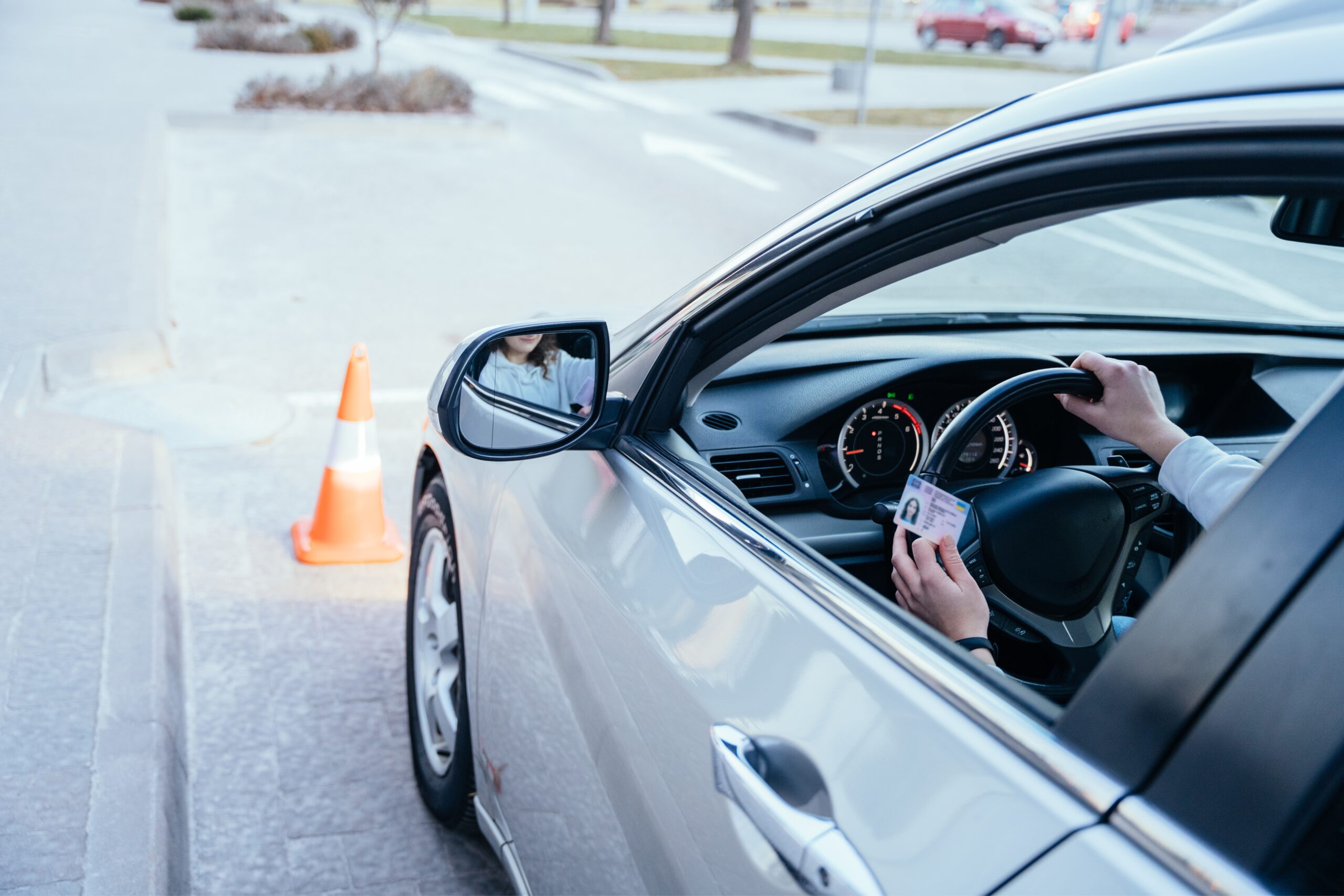
Driving Without a License Plate
Driving without valid license plates is a severe violation in all states in the U.S. Understanding these restrictions is critical if you wish to remain compliant and avoid serious repercussions. If you’ve received a ticket for this offense, consulting a traffic ticket lawyer can be crucial. An experienced attorney can assess your case, challenge the citation, and work to minimize or dismiss penalties, helping you protect your driving record and avoid unnecessary legal complications.sions.
Schedule a Free Initial Consultation Today!
Legal Requirements for License Plate Placement
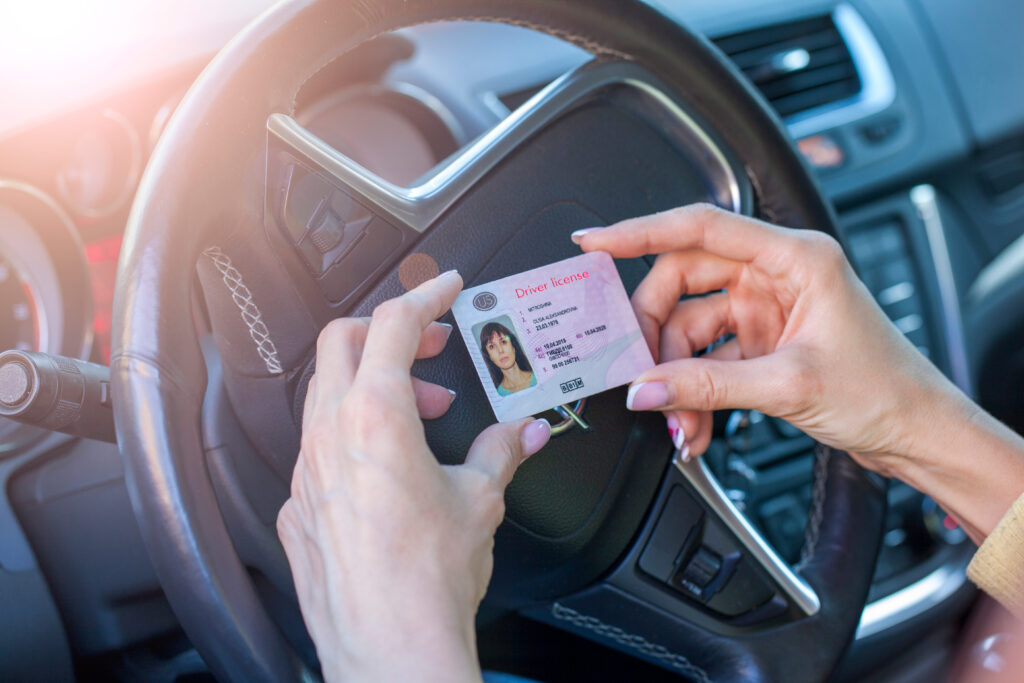
State law requires that drivers display license plates on the back of their car or the front and back of the vehicle. The plate should be clear of any obstructions, such as tinted coverings or frames, which might reduce visibility. Legislation mandates that license plates be clean and readable at all times, with all letters and numbers viewable from a fair distance.
Proper registration is also an essential part of license plate rules. Vehicle owners must confirm their registration is current and corresponds to the displayed plate. The relationship between a driver’s registration and their license plates supports law enforcement’s efforts to identify autos and their owners.
Breaking Down This Form of Driver Identification and Its Importance: 9 Ways License Plates Keep Everything Uniform and Safe
- Law Enforcement and Public Safety. License plates help law enforcement identify automobiles engaged in crimes, accidents, or traffic infractions. They help law enforcement find stolen automobiles and aid with AMBER Alert situations. Plates also assist police in tracking car movements and establishing time frames during crises or investigations
- ALPRs improve traffic surveillance and crime prevention. Automated License Plate Readers (ALPRs) represent camera systems that capture license plate images using optical character recognition (OCR) for use in databases.
ALPRs compare plate numbers to databases of stolen cars or vehicles of interest. This technology allows law enforcement to:
- Solve crimes
- Recover stolen vehicles
- Collect information regarding active warrants
- Identify missing people
- Perform homeland security
- Vehicle Registration and Ownership. Plates confirm registrations within each state and verify payment of fees and taxes. They establish ownership and prevent theft. Plate registration also ensures compliance with state safety and emissions standards.
- Administrative and revenue functions. The use of license plates also:
- Improves toll collection and parking enforcement
- Allows automated systems to support red light cameras and catch drivers who commit traffic violations
- Use registration fees to cover use-based road upkeep
- Track vehicles for insurance verification
- Public Accountability. License plates are also used to:
- Hold drivers accountable for their actions on the road
- Allow individuals to report unsafe driving or suspicious conduct
- Support hit-and-run investigations
- Facilitate commercial operations like parking garages and drive-through services
- Consequences of Driving without License Plates. As mentioned, driving without a license plate is a serious violation in most U.S. states, punishable by fines ranging from $100 to several thousand dollars. Violations add points to the driving record and lead to impoundment. Some jurisdictions impose misdemeanor criminal charges that require mandatory court attendance.
- Long-term Impacts. It’s important to note that driving without plates has long-lasting consequences, including:
- Higher insurance payments
- Problems with acquiring a future car registration
- The creation of a criminal record
- Additional fines and penalties for regaining driving privileges
- More vigilance by the police during traffic stops
- Special Conditions and Exceptions. States often provide temporary permits for newly purchased automobiles in addition to the mandatory plate requirement. Plates allow for the use of:
- Transit permits to move autos across states.
- Dealer plates for test drives and car transportation
- Special registrations for collector or vintage vehicles
- The temporary operation of vehicles before a plate replacement
- Best Practices in Compliance. To prevent license plate difficulties:
- Register your auto quickly upon purchase or relocation to a new state
- Maintain the current registration and renew as needed
- Ensure plates are plainly visible and correctly mounted
- Replace broken or unreadable plates
- Report missing or stolen plates immediately
- Obtain necessary interim permits
Maintaining legal registration and displaying valid license plates should be regarded as a fundamental obligation of car ownership. The possible repercussions of noncompliance, including fines and loss of driving privileges, significantly outweigh any apparent benefits of driving without proper plates.
Penalties and Consequences
The penalties for driving without license plates are designed to deter noncompliance and further crimes.
Examples of Violations and Penalties
For example, in New Jersey, violators face a significant punishment of up to $300. The court frequently couples the monetary fine with community service.
Sometimes, the court may suspend the driver’s license for up to a year. The severity of these repercussions in this state and other jurisdictions indicates the severe attitude toward vehicle identification and registration compliance.
Second and subsequent violations cause harsher sanctions. For example, in New Jersey, repeat offenders may face penalties of up to $500 and a mandatory 14-day jail term.
Again, the court usually requires community service and may impose a two-year license suspension. Additionally, law enforcement personnel can remove unregistered automobiles from the road. Owners must pay towing and storage fees.
Each state defines the rules and regulations for license plate placement. For instance, in New York, drivers must display two license plates, one on the front and one on the back of the vehicle.
This dual-plate requirement improves law enforcement’s capacity to identify cars from numerous perspectives. The placement is designed to increase overall traffic safety. Both plates must be secured firmly and kept in excellent condition.
Plates must be mounted horizontally, leaving all numbers and characters unobstructed. New York law forbids coverings or chemicals that may interfere with the explicit recognition of plate numbers, including glare-causing plastic covers.
Violating these requirements can cause hefty penalties. Offenders may face penalties and, in extreme situations, up to 15 days of incarceration. The court decides at its discretion the amount of fines and fees. Repeat offenders receive harsher fines, indicating a commitment to upholding correct vehicle identification regulations.
Other Consequences and Associated Charges
Driving without license plates frequently causes secondary concerns during traffic stops. When police stop a car for missing plates, they may find further offenses or questionable situations. These circumstances often lead to additional charges or investigations.
Investigating DUI
One major fear is the possibility of DUI prosecution. If an officer stops a car for missing plates and feels the driver is intoxicated, they will conduct a DUI investigation. The original plate violation was likely the reason for the stop, which can cause more serious penalties.
Vehicle Searches
Vehicle searches are another possible outcome. The lack of license plates may create concerns about additional unlawful activity, providing authorities with a valid excuse to perform a vehicle search. During such searches, the finding of illicit narcotics, firearms, or other contraband will cause extra criminal penalties.
Schedule a Free Initial Consultation Today!
Steps to Take After Getting Charged
If you are accused of driving without a license plate, take prompt and proper action. Record every aspect of the occurrence, including the time, location, and circumstances surrounding the stop. Obtain copies of any citations and take detailed notes on remarks the officer makes.
Addressing the underlying issue is critical. If the infraction was caused by missing or stolen plates, submit a police complaint and contact the Department of Motor Vehicles to request replacement plates. If registration difficulties cause the violation, take quick action to amend or renew the registration. Contact a traffic attorney right away for direction and advice.
How Can a Traffic Attorney Help?
Obtaining legal assistance from an experienced traffic attorney may make a big difference in the outcome of a license plate violation case. These lawyers understand the complications of traffic law and may frequently find plausible defenses or mitigating circumstances that can reduce the penalties and fines.
Traffic attorneys offer several essential services in these matters. They work with prosecutors to mitigate charges or fines, particularly for first-time offenders. An attorney can design a thorough defense plan in situations with several infractions or detailed circumstances.
An attorney can also assist in compliance, ensuring all deadlines are fulfilled and correct processes are followed. They may highlight technical defenses relating to the stop or the officer’s probable cause. When administrative mistakes or exceptional circumstances cause the violation, an attorney can successfully explain these facts to the court.
Long-term Implications and Prevention
Driving without license plates has implications beyond the immediate fines. Insurance companies may raise premiums if they hear of such infractions. The offense is recorded on the driver’s record, which may impact future traffic stops and insurance rates.
Prevention is the best way to avoid these problems. Regular car maintenance should involve inspecting and installing license plates. Drivers should keep their registration current and swiftly replace damaged or stolen plates through the appropriate procedures.
Understanding the Registration Requirements
Many states have strict car registration rules tightly related to license plate laws. Again, registration establishes ownership and guarantees that automobiles fulfill state safety and emission regulations. Proper registration requires current insurance coverage and passing the required inspections.
Registration processes require certain documents and costs. Vehicle owners must show evidence of identity, insurance, and ownership. Regular registration renewals help prevent infractions and assure compliance with state regulations.
Special Conditions and Exceptions
Certain circumstances may impact license plate regulations. New automobiles frequently carry temporary plates as they await permanent ones. Dealers must adhere to certain restrictions governing dealer plates and interim registrations. Furthermore, states have provisions for special-purpose cars and vintage autos. This regulation might include the use of state license plates on government autos.
Commercial cars have extra requirements for license plates and registration. These vehicles frequently require unique classifications and must show identifying information other than conventional license plates. If you drive a commercial vehicle, it’s important to understand the legal requirements for operating these vehicles.
The Role of Technology in Enforcement
Modern law enforcement increasingly depends on technology to identify automobiles without valid plates. Automated license plate scanners scan plates and instantaneously compare them to databases of registered cars. This technology makes it more challenging to drive a vehicle without the proper registration and plates.
States employ computerized systems to monitor registration status and plate allocations. These technologies aid in rapidly identifying stolen plates and verifying proper registration during traffic stops.
Impact on Commercial Drivers
Commercial drivers face harsh penalties for license plate infractions, which might jeopardize their Commercial Driver’s License (CDL) status and job prospects. Commercial vehicle operators must strictly adhere to all registration and plating requirements.
Companies that operate commercial cars must guarantee that all vehicles have valid plates and current registrations. Failure to do so may cause hefty fines and a driving suspension.
Recent Legal Developments
States often alter their car and traffic legislation, including license plate requirements. Recent revisions focus on electronic car registration systems and new plate designs. Staying updated about these developments helps drivers remain current and compliant.
Administrative Procedures and Appeals
Drivers charged with license plate offenses have unique administrative rights and processes. States have options for appealing citations or requesting hearings. Understanding these procedures enables drivers to preserve their rights and present their claims successfully.
The appeals procedure often includes deadlines and paperwork requirements. Working with an attorney knowledgeable about these procedures can increase your chances of a successful conclusion.
Community Impact and Safety Concerns
License plates serve as a primary identifier supporting public safety. Law enforcement uses proper vehicle identification to investigate crimes and find stolen automobiles. These criteria make it easier to collect tolls and enforce parking rules and regulations on the roadway.
U.S. jurisdictions highlight the link between accurate vehicle identification and public safety. Understanding this link helps drivers understand the necessity of having the correct registration and plates.
The Future of Vehicle Identification
Emerging technology is being directed toward future license plate regulations. Technology engineers are developing digital license plates and other driver identification methods. States continue to evaluate the new technology while following current identification rules. For now, some developers are addressing privacy concerns regarding locational history.
Driving without a license plate poses substantial dangers and sanctions. Understanding these rules, ensuring correct registration, and swiftly resolving infractions help drivers avoid costly penalties. When violations occur, taking immediate action and contacting a traffic attorney will help you get back on the road legally. Regular compliance with vehicle identification standards increases road safety and the lawful operation of motor vehicles.
Contact a Traffic Lawyer Now
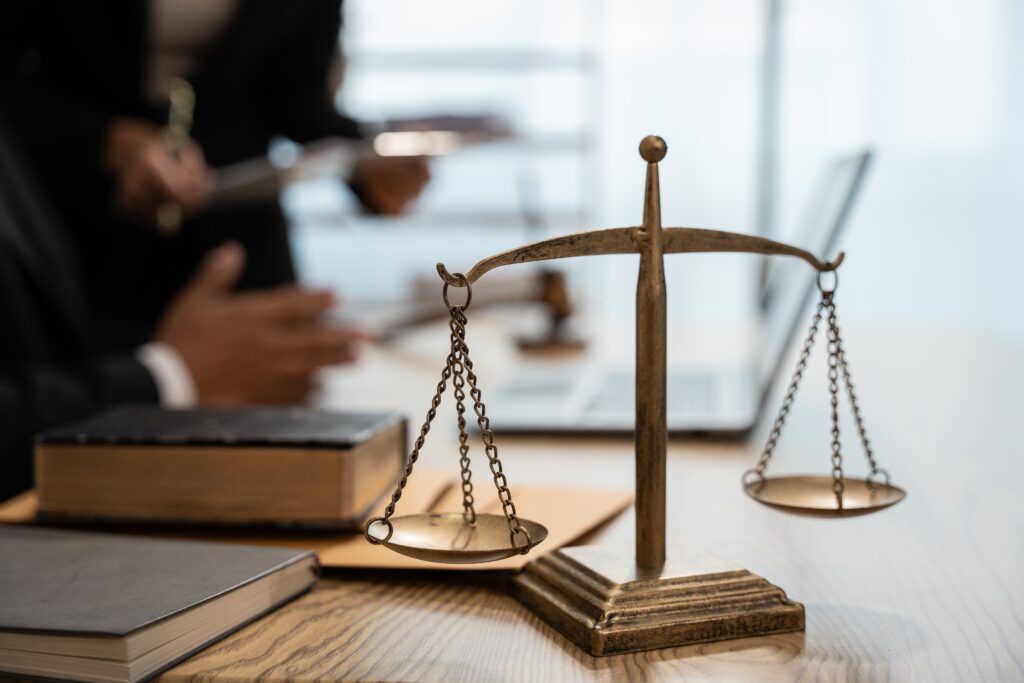
Taking proactive action regarding a license plate and registration violation is imperative. That means contacting a criminal defense attorney right away. The legal professional you choose as your lawyer should have experience in legal matters like yours. By contacting a traffic lawyer, you can stay on top of compliance and reduce any future legal costs.
Contact a traffic attorney if you’ve been pulled over without a license plate. Their skills and experience will help resolve your legal difficulties more easily.
Schedule a Free Initial Consultation Today!
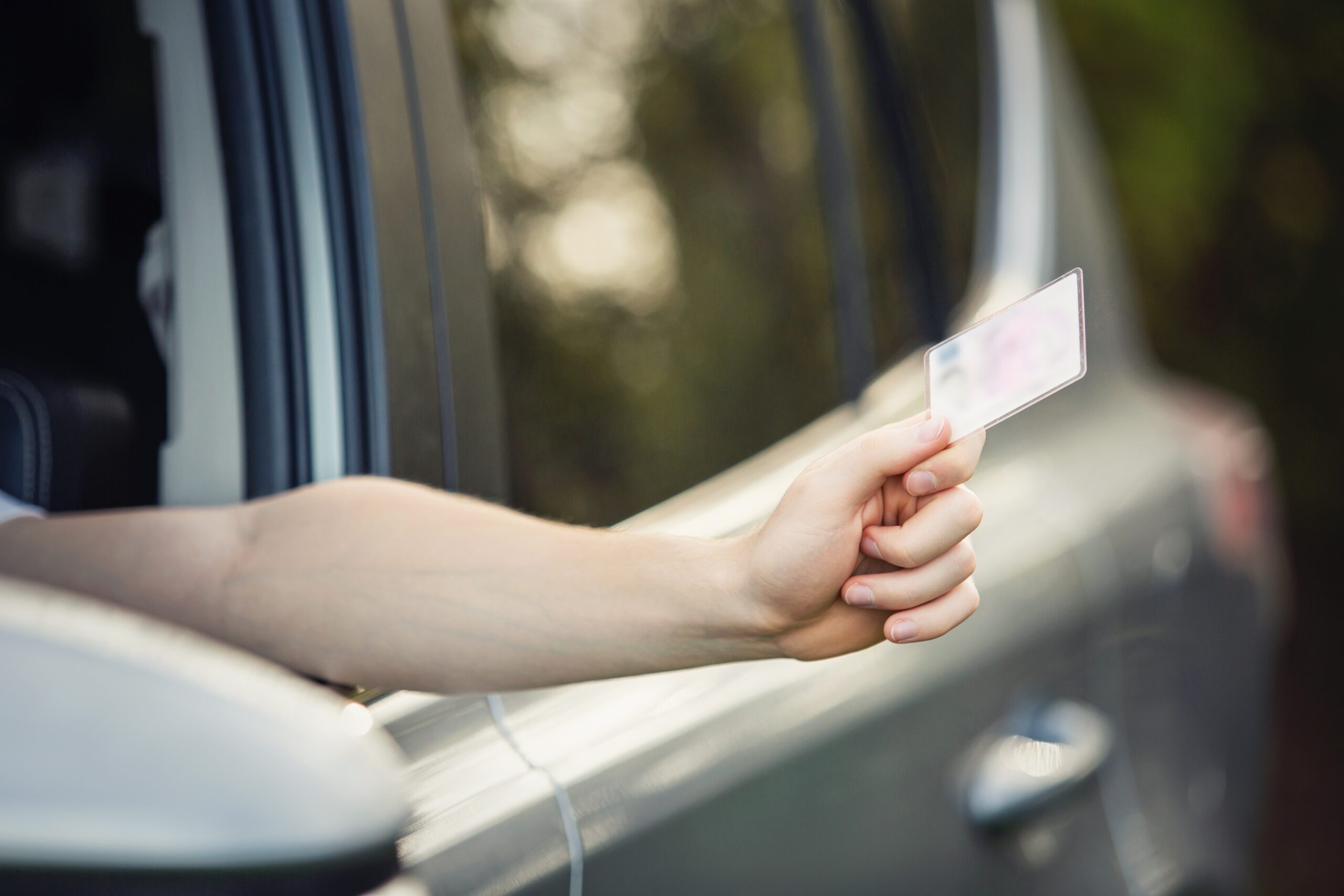
Driving Without a License
Driving without a valid driver’s license represents a serious violation. You can face significant legal penalties.
Therefore, driving without a license can land you in hot water, affecting your lifestyle, insurance rates, and driving record over time. Behaving in this manner can directly affect personal and professional relationships and how you get around town now and in the future. If you’re facing charges, consulting Clifton traffic ticket lawyer can help you understand your legal options and protect your rights.
Schedule a Free Initial Consultation Today!
Speak to a Traffic Ticket Lawyer
If you’re caught driving without a license, you need to retain legal help immediately. Working with a traffic ticket lawyer can reduce the stress associated with this violation.
Understanding the Basics
Driving without a license can refer to numerous circumstances. You may not have a license, have an expired permit, or have a suspended or revoked license.
Each circumstance has its own set of penalties and possible outcomes. The severity of the sentence is frequently determined by criteria such as past offenses, the circumstances surrounding the arrest, and if an accident happened.
Penalties and Consequences – Examples
Driving without a license carries severe consequences. For example, in New Jersey, first-time offenders risk up to a $500 fine and up to 60 days in jail. Additionally, the court may order a six-month delay in receiving your license.
The penalty for a second or subsequent crime is even harsher. Repeat offenders risk identical financial fines and mandatory incarceration of one to five days. The court may also extend any current license suspension, making it harder to obtain a license in the future.
Like New Jersey, New York has a harsh attitude toward unlicensed driving, although its sanctions differ. The punishments for driving without a license in New York carry a minimum penalty of $200 to $500 in fines and/or up to 30 days in jail.
In addition, the state’s legal system complicates matters by addressing Aggravated Unlicensed Operation (AUO) charges.
AUO charges in New York are classified into three levels, each carrying progressively harsher penalties.
- Third-degree AUO, the least serious offense, is often charged when someone drives while their license is suspended or revoked.
- Second-degree AUO refers to more serious situations, such as several suspensions or a suspension due to drunk driving.
- First-degree AUO, the most serious penalty, sometimes involves a DUI charge on top of a driving license suspension for a previous DUI arrest.
The Role of Vehicle Weight. An often overlooked aspect that can influence fines is the weight of the vehicle being driven. Therefore, commercial vehicle operators face stiffer penalties. Because the state realizes the heightened risk presented by larger vehicles driven by unlicensed drivers, it will increase the fines and jail time.
Aggravating Factors
When an unlicensed driver collides, things get even trickier. Depending on the severity of the accident and the injuries or property damage, the legal repercussions may go beyond conventional fines. Therefore, you may get sued or possibly face criminal prosecution.
Wherever you live, driving without a license is a violation the courts take seriously. This fact makes it imperative that you work with a traffic attorney.
Why You Should Work with a Lawyer
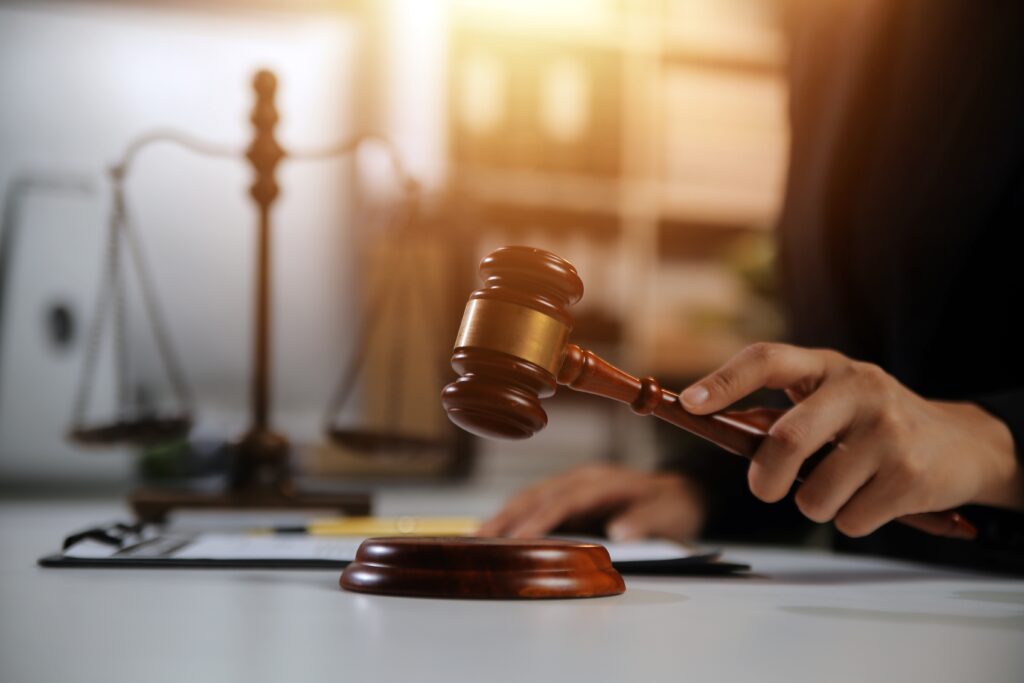
Working with a traffic lawyer who is experienced in license-related violations gives you significant advantages:
Experience in Local Traffic Rules
Traffic attorneys know and understand state-specific traffic rules and regulations. They are familiar with the rules of the traffic courts and can successfully deal with the legal details.
Case Evaluation and Strategy Development
A traffic lawyer reviews your case to identify the possible defenses and figure out how to reduce fines. They may find procedural errors, question the evidence, or strike a resolution with the prosecutor to reduce charges.
Understanding the Collateral Ramifications
Aside from the immediate penalty, driving without a license can have long-term ramifications for employment, insurance premiums, and future licensing chances. Traffic attorneys can provide guidance on these consequences and seek to mitigate their impact.
Negotiation Skills
A lawyer can settle many cases through negotiations with prosecutors. Traffic lawyers frequently develop professional ties with court workers and prosecutors, which can lead to more advantageous plea deals or alternative outcomes.
Fighting the Charges: Legal Strategies and Defenses
Depending on the circumstances, there are several viable defenses to allegations of driving without a license:
Lack of Knowledge
In some situations, particularly those involving suspended licenses, defendants may not have been given adequate notice of their suspension. This reason can be an acceptable defense, especially if the document copies lack notice.
Emergency Situations
A judge may show leniency when driving occurs during an emergency. However, you must justify the violation with a well-documented and genuine emergency.
Administrative Mistakes
Administrative errors can lead to suspensions or revocations. Carefully evaluating your driving record and supporting documents may identify faults your attorney can address.
Technical Defenses
Issues with traffic stops, such as a lack of probable cause or incorrect police procedure, may be grounds for contesting the accusations.
Steps to Take After Getting Charged
If you are accused of driving without a license, immediate action can significantly affect the outcome of your case.
Document Everything
Record all incident data, like time, location, and circumstances. Keep any pertinent paperwork, such as communications regarding your licensing status.
Avoid Committing Offenses
While your case is underway, follow all traffic regulations and avoid driving without valid authorization since any offenses might worsen your legal difficulties.
Gather Supporting Information
Gather any papers that may aid your case, such as evidence of identification, domicile, and any paperwork about your license status or efforts to get a license.
Contact a Traffic Lawyer
Get legal help as quickly as possible. Early action by an attorney can cause better outcomes.
Long-term Implications and Considerations
A conviction for unlicensed driving, as noted, has far-reaching consequences.
Insurance Implications
Drivers with unlicensed operation convictions may face considerable rate increases, or their insurance company may deny them coverage.
Employment Consequence
Many occupations require a valid driver’s license, and a conviction for driving without one might limit a person’s career chances.
Future Licensing
A conviction might make it more challenging to receive a license in the future, potentially resulting in longer waiting periods before becoming eligible.
Interstate Considerations
Violations in one state impact driving privileges in others. For example, if you’re cited in New Jersey but live in New York, you’ll need a traffic ticket lawyer familiar with state information-sharing agreements.
Prevention and Compliance
The most effective strategy to prevent fines for driving without a license is to maintain appropriate licensing and compliance:
Regular License Renewal
Track your license’s expiration date and renew it in advance.
Address Updates
Keep your address information up to date with the Department of Motor Vehicles to guarantee you get vital notifications.
Understanding Restrictions
Be aware of any limitations on your license and thoroughly follow them.
Alternative Transportation
If you cannot drive lawfully, plan for alternative transportation rather than risk operating without a license.
Restoration Process
For individuals looking to regain their driving privileges:
- Apparent outstanding issues: Address any underlying causes of a license suspension or revocation, such as unpaid fines or required courses.
- Follow Procedures: Follow all administrative procedures for license restoration, such as paying restoration fees and completing required documents.
- Seek Legal Advice: Consult a traffic attorney to help manage the restoration procedure, especially if you have issues or several offenses.
Schedule a Free Initial Consultation Today!
How Can a Lawyer Help with Driving Without a License Charge?
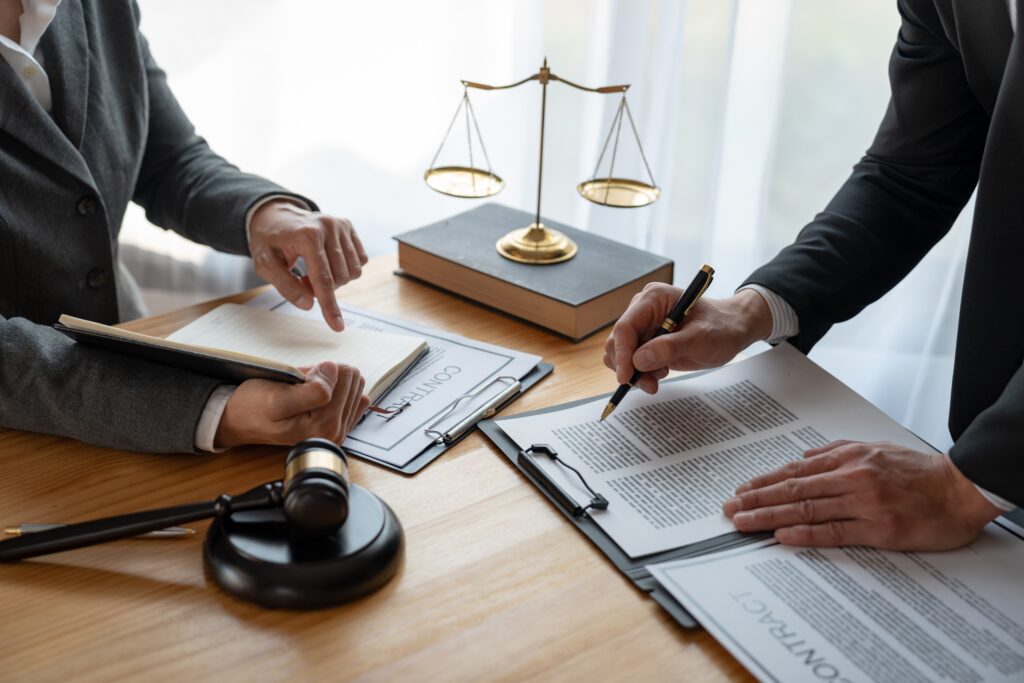
A traffic lawyer is helpful when dealing with allegations of driving without a license. Below is a detailed explanation of how legal assistance might help handle your predicament and reduce the repercussions.
Immediate Case Analysis and Strategy Development
When you initially meet with a traffic lawyer, they will thoroughly review your case. The case review involves assessing the facts behind your arrest, investigating past infractions, and finding appropriate defenses. Your lawyer will research factors that might affect your case. A lawyer will check if the police followed the correct processes during the traffic stop or if there were any administrative issues with your license status.
The lawyer will also determine your eligibility for special programs or alternatives. Some jurisdictions provide programs for first-time offenders. The program may also extend to individuals trying to obtain the proper licensure. Your lawyer can tell you if you’re qualified for these programs and walk you through the application process.
Representation in Court Proceedings
One of the most important ways a lawyer can help is by representing you in court. Court proceedings may be intimidating for individuals unaware of their rights or the legal procedures involved.
Your attorney will:
- Present your case successfully to the judge, emphasizing mitigating factors or reasons for your situation.
- Challenge any procedural flaws or contradictions in the evidence used against you.
- Negotiate with prosecutors about potentially lowering charges or fines.
- Ensure that all documentation is submitted correctly and on time.
- Advocate for alternative sentencing or programs that may be available in your jurisdiction.
License Restoration Assistance
If your license has been suspended or revoked, a lawyer can help successfully restore your license. This process frequently includes:
- Reviewing your driving record to uncover any lingering concerns that a lawyer needs to address
- Creating a checklist of prerequisites for license restoration
- Assisting you in gathering the essential documents and proof
- Representing you at restoration hearings, if necessary
- Assisting with paperwork and ensuring the correct filing of all papers
- Coordinating with the Department of Motor Vehicles to ensure compliance and status
Negotiating Better Results
Experienced traffic lawyers can use their knowledge of the local courts to negotiate:
- Reduced fees or penalties
- Payment arrangements for fines and fees
- Alternative sentence choices
- Deferred prosecution agreements or pre-trial diversion programs (PTDs)
- Conditional dismissal after you meet specific criteria
Resolving Several Issues
Driving without a license is not always an isolated issue. Your lawyer can assist in resolving connected topics such as:
- Outstanding tickets or warrants
- Insurance concerns
- Noncompliance with registration requirements
- Other driving offenses that might have occurred at the same time
- Implications for commercial driver’s licenses (CDLs)
Administrative Advocacy
Your attorney can also assist with the administrative parts of your case by:
- Communicating with the Department of Motor Vehicles on your behalf
- Ensuring the correct filing of documents
- Tracking deadlines and requirements
- Addressing inaccuracies in your driving record
- If required, coordinating between multiple jurisdictions
Long-Term Protection of Your Rights
A lawyer can help safeguard your long-term interests by:
- Advising you on how to avoid future offenses
- Explaining the ramifications of various plea alternatives
- Helping you understand how a resolution may affect your insurance premiums
- Advising on potential job ramifications
- Protecting your rights throughout the legal process
Emergency and Special Circumstances
A traffic ticket attorney can handle unique circumstances surrounding your case, such as
- A medical emergency
- Family emergencies
- Employment-related situations
- Natural calamities
- Vehicle mechanical breakdowns
A lawyer will successfully convey these factors in court and advocate for mercy or special treatment.
Insurance and Civil Liability Protection
If your unlicensed driving led to an accident, a lawyer can help:
- Coordinate with the insurance companies
- Protect you from civil responsibility wherever feasible
- Negotiate settlements, if necessary
- Consult on prospective personal injury claims
Future Prevention and Compliance
A qualified traffic lawyer can also prevent future problems by:
- Explaining the criteria for keeping a valid license
- Advising on adequate paperwork and record-keeping
- Providing recommendations for future traffic stops
- Providing resources for continuous compliance
Cost-Benefit Analysis – How a Lawyer Helps You Save Money
While employing a lawyer incurs expenses, they may frequently save you money in the long run by:
- Lowering or eliminating fines and penalties
- Preventing future infractions and the related expenses
- Reducing insurance premiums increases
- Protecting your job opportunities
- Avoiding expensive blunders throughout the legal process
Interstate Considerations
If your offense spans many states, a lawyer can assist by:
- Coordinating between jurisdictions
- Understanding and handling interstate compact agreements
- Reviewing out-of-state licensing issues
- Ensuring compliance across state boundaries
A lawyer can frequently accomplish outcomes you can’t attain independently, making their assistance critical in addressing driving without a driver’s license.
When faced with allegations of unlicensed driving, skilled legal representation is vital due to the complications of traffic regulations and the possibility of harsh penalties. An experienced traffic attorney can help you understand the legal system for better results.
Talk to a Traffic Ticket Lawyer Now
While proper licensing and compliance are the best ways to avoid problems, you should still seek help from a traffic ticket lawyer if you’re charged with driving unlicensed. Call a criminal defense attorney now if you face a suspended license charge.
Schedule a Free Initial Consultation Today!
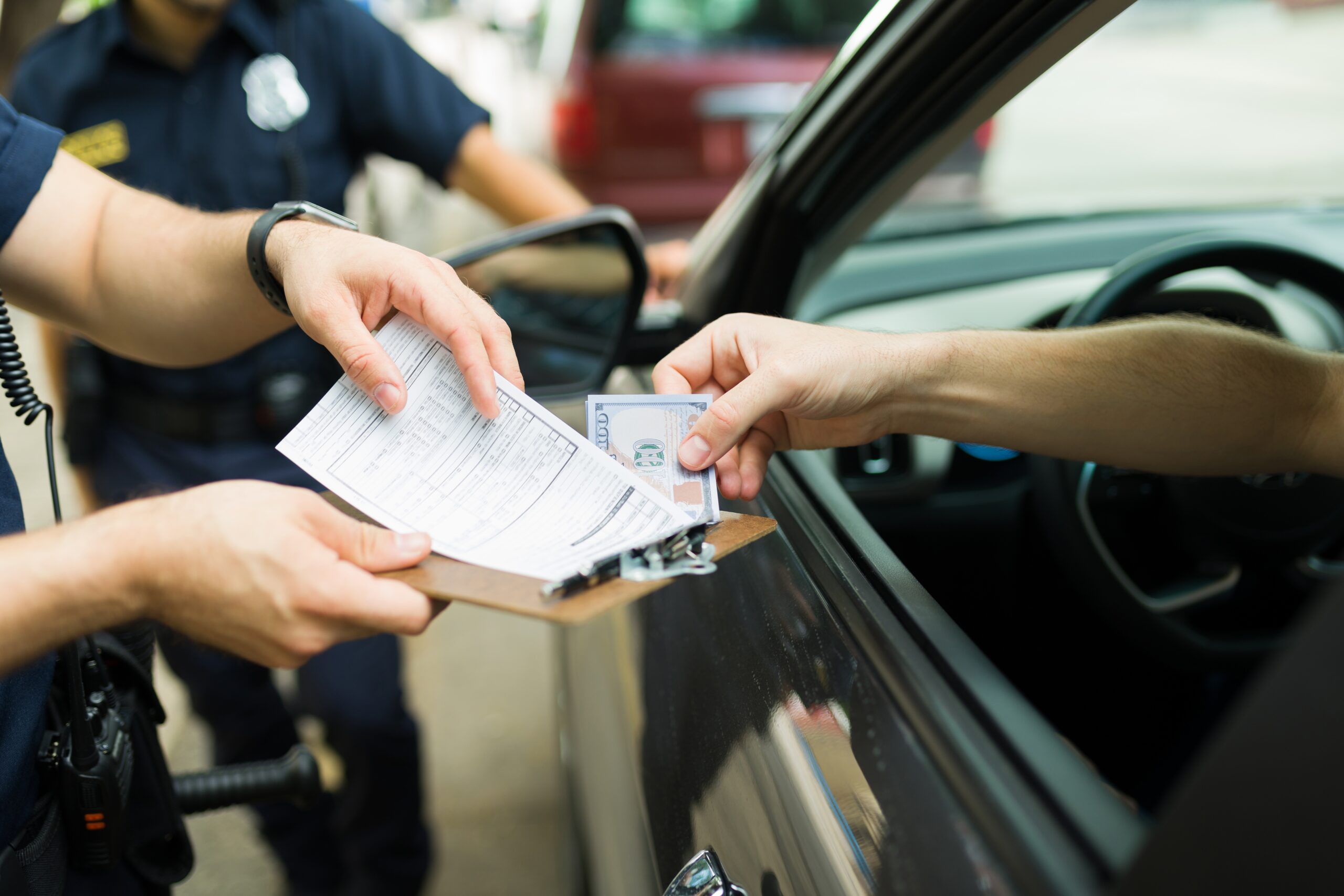
Drivers of These Cars Get the Most Speeding Tickets
Researchers, insurance companies, and police often wonder how a person’s choice of vehicle and driving habits connect. Recent data shows surprising trends for vehicles – commonly involved in speeding offenses, providing insights into the cars and the people who choose them.
When you look at the following data, regard the information from a broader scope rather than absolute measures. Individual driving habits, area enforcement patterns, and other factors influence citation rates for a car make or driver.
Insurance company data from the digital business Insurify tells an intriguing tale about speed, style, and driver demographics that goes beyond mere chance. Interestingly, the data below shows that people feel more inclined to speed in foreign vehicles than their US counterparts. The Chevrolet Cruze Limited tops the US makes and models citation list at 17.9 percent.
If you receive a speeding ticket, you may have options to fight it. Contact a traffic ticket attorney to discuss your case and explore potential defenses.
Schedule a Free Initial Consultation Today!
Speak to a Traffic Ticket Attorney If You Get a Speeding Ticket
Sometimes, drivers get cited for speeding and believe the ticket was a mistake. If this happens to you, it pays to have a traffic ticket lawyer on your side. Using legal services is a cost-effective way to deter major expenses down the road.
Car Makes that Receive the Most Tickets for Speeding
At the manufacturer level, Infiniti tops the pack with 8.7 percent of its drivers receiving speeding penalties, followed by Scion (8.4 percent) and Volkswagen (8.3 percent).
Subaru rounds out the top manufacturers, with 8 percent of drivers receiving citations. However, when you review individual models, the figures provide more revealing data.
An Electric Vehicle that Surpasses Speed Limits – The BMW i3
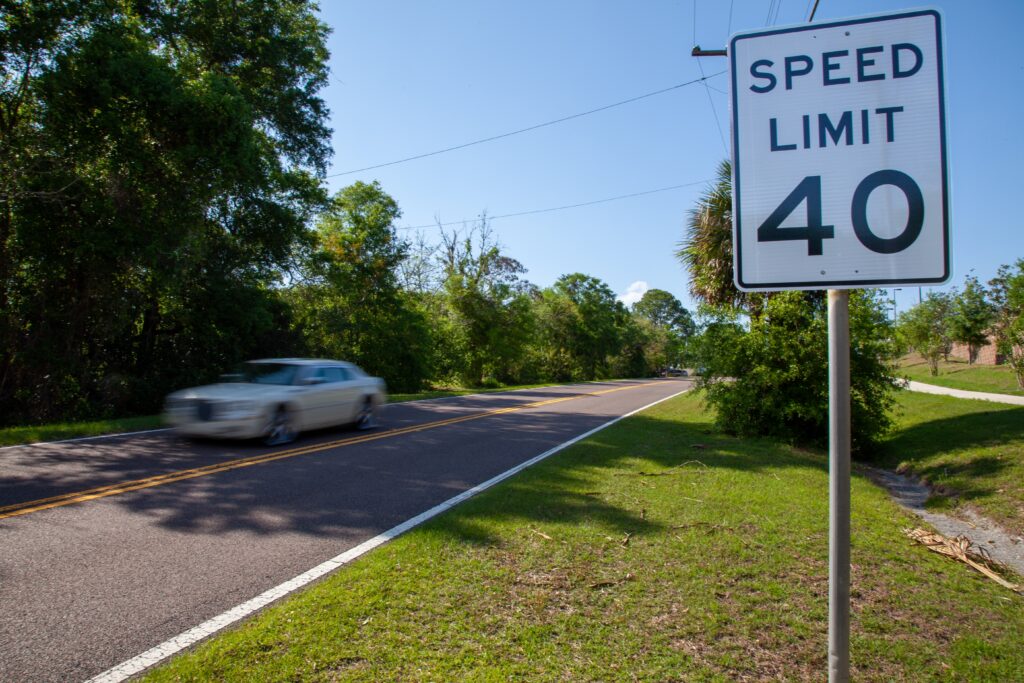
The BMW i3 leads the list of electric vehicles, with 17.6 percent of drivers obtaining speeding tickets regularly.
This figure defies the widely held belief that electric car owners are primarily concerned with efficiency and environmental effects.
The i3’s quick torque delivery and clever engineering may encourage a driver to exceed the speed limit. However, it also passes crash tests for safety, so a driver may not think that driving fast in the car is that reckless or harmful.
The Audi S4
The Audi S4 follows closely behind, with 14.6 percent of its drivers obtaining speeding penalties. With its powerful turbocharged engine and Quattro all-wheel-drive system, this high-performance luxury car promotes driver oversights regarding safety.
The vehicle’s sophisticated look may also cause some drivers to underestimate their speed, resulting in more frequent penalties.
The Toyota 86 Sports Car (Formerly the Scion FR-S)
The Scion FR-S (now known as the Toyota 86) ranks third, with 13.7 percent of drivers receiving speeding citations. Toyota and Subaru collaborated to create this lightweight sports vehicle while keeping handling and driver involvement in mind.
The car’s low price makes it especially appealing to younger drivers, who are likelier to test the auto’s performance.
The Subaru WRX
The Subaru WRX, with 13.6 percent of drivers earning fines, has long been known to attract speed aficionados.
Its rally-inspired background, turbocharged engine, and all-wheel-drive system combine to produce a perfect storm of performance potential—a lure that some drivers can’t pass up. The WRX’s comparatively low price makes it popular among younger drivers who are more prone to driving fast.
The Hyundai Genesis Coupe and Kia Stinger
The Hyundai Genesis Coupe and Kia Stinger are tied at 13.4 percent, indicating the Korean automakers’ successful entry into the car market’s performance sector.
The vehicle’s performance entices drivers who seek handling and speed in a lower-priced auto.
The Volkswagen Golf GTI
The Volkswagen Golf GTI, with 11.1 percent of its drivers receiving fines, completes this comprehensive assessment of speed-friendly automobiles.
This hatch-designed vehicle has long been regarded as the standard for practical performance, providing a good blend of everyday use and sporty potential.
However, this adaptability may cause some drivers to underestimate the car’s performance in regular driving scenarios.
Schedule a Free Initial Consultation Today!
Driver Profiles and Contributing Factors
To understand why certain cars receive more speeding fines, examine the characteristics and activities of their usual drivers. Several factors become apparent when you review the data.
Age and Experience
Younger drivers, particularly those under 30, are statistically more likely to obtain speeding penalties, regardless of vehicle type. When these demographics coincide with the ownership of performance-oriented automobiles, the chance of getting a citation rises dramatically. Many vehicles on our list, such as the Subaru WRX and Scion FR-S, are popular among younger consumers owing to their performance capabilities and low cost.
Income and Risk Tolerance
Interestingly, speeding tickets correspond to both extremes of the wealth range. Luxury car owners, like those driving the Audi S4, may see speeding penalties as a minor financial issue, leading to more aggressive driving practices.
On the other hand, younger drivers of cheaper-performance cars may be more ready to risk a citation for the thrill of speed, even if the financial consequences are more significant.
Performance Expectations
Drivers who intentionally select automobiles recognized for their performance characteristics frequently have differing expectations about driving dynamics and speed. These assumptions can increase the risk of violating stated limits, especially in cars that make high-speed driving appear deceptively pleasant and controlled.
Social and Safety Factors
Car culture and peer influence significantly impact driving behavior. Certain automobiles, like the Subaru WRX and Volkswagen Golf GTI, have active enthusiast groups that may unintentionally promote more aggressive driving practices. Also, cars like the Volkswagen Golf GTI regularly pass safety crash tests.
Social media posts and auto clubs, therefore, promote the idea of glamor and speed. This social behavior makes speeding a more acceptable practice.
The Psychology Of Speed
The link between automobile choice and speeding behavior frequently reflects a psychological problem. This issue arises when the driver reinforces their connection to the car’s performance capabilities and potential.
Vehicle design is key in this dynamic. Modern performance vehicles are increasingly capable of high-speed driving while remaining comfortable and stable, perhaps desensitizing drivers to their own safety. Features like sound insulation, sophisticated suspension systems, and aerodynamic efficiency may make high-speed driving feel more normal.
Manufacturer Marketing and Image
Automakers frequently sell their performance models using images and wording that stress speed, power, and driving enjoyment. While the ads carry legal disclaimers, this marketing approach also sets expectations and connections that impact driving behavior. The “halo effect” of racing involvement and performance legacy can amplify these trends.
Speeding: The Impact on Insurance and The Cost of Ownership
Speeding reflects what you may pay in insurance and the expenses of owning a car. Insurance companies figure in car citation rates when calculating premiums. If you own a vehicle with a higher ticketing rate, you’ll usually pay more for insurance, independent of driving history.
Mitigating Factors and Responsible Vehicle Ownership
While some automobiles are more prone to citations, responsible ownership is still feasible, provided you drive conscientiously and understand a vehicle’s capabilities. Modern driver assistance systems can help drivers maintain legal speeds and avoid tickets when appropriately used.
Reducing Speed – What the Future Technology Holds
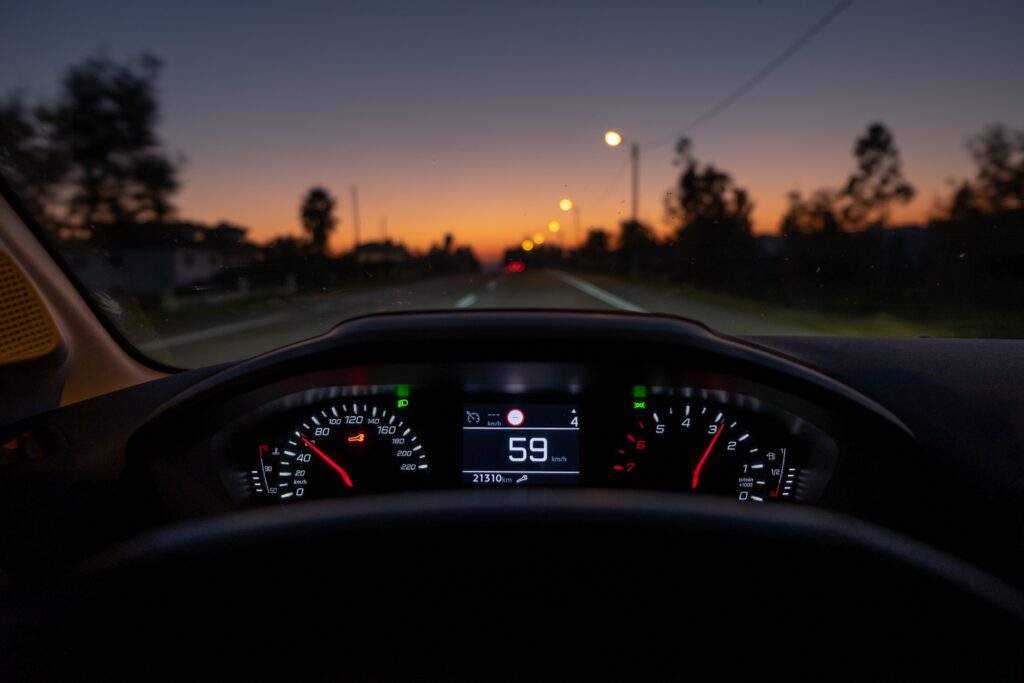
As car technology advances, especially with the introduction of electric vehicles and driver assistance systems, the link between vehicle choice and speeding behavior may shift. However, the underlying connection between driver psychology, vehicle capabilities, and driving behavior will likely continue.
Vehicle selection remains only one component of the effect on driving behavior, which includes personal responsibility, driving circumstances, and enforcement practices.
Fight a Traffic Ticket You Think Is Unfair – Call a Traffic Ticket Attorney to Help
You can fight a speeding ticket you believe is unfair by hiring a criminal defense lawyer. Learn more about your rights today. Contact a ticket traffic lawyer now.
Schedule a Free Initial Consultation Today!
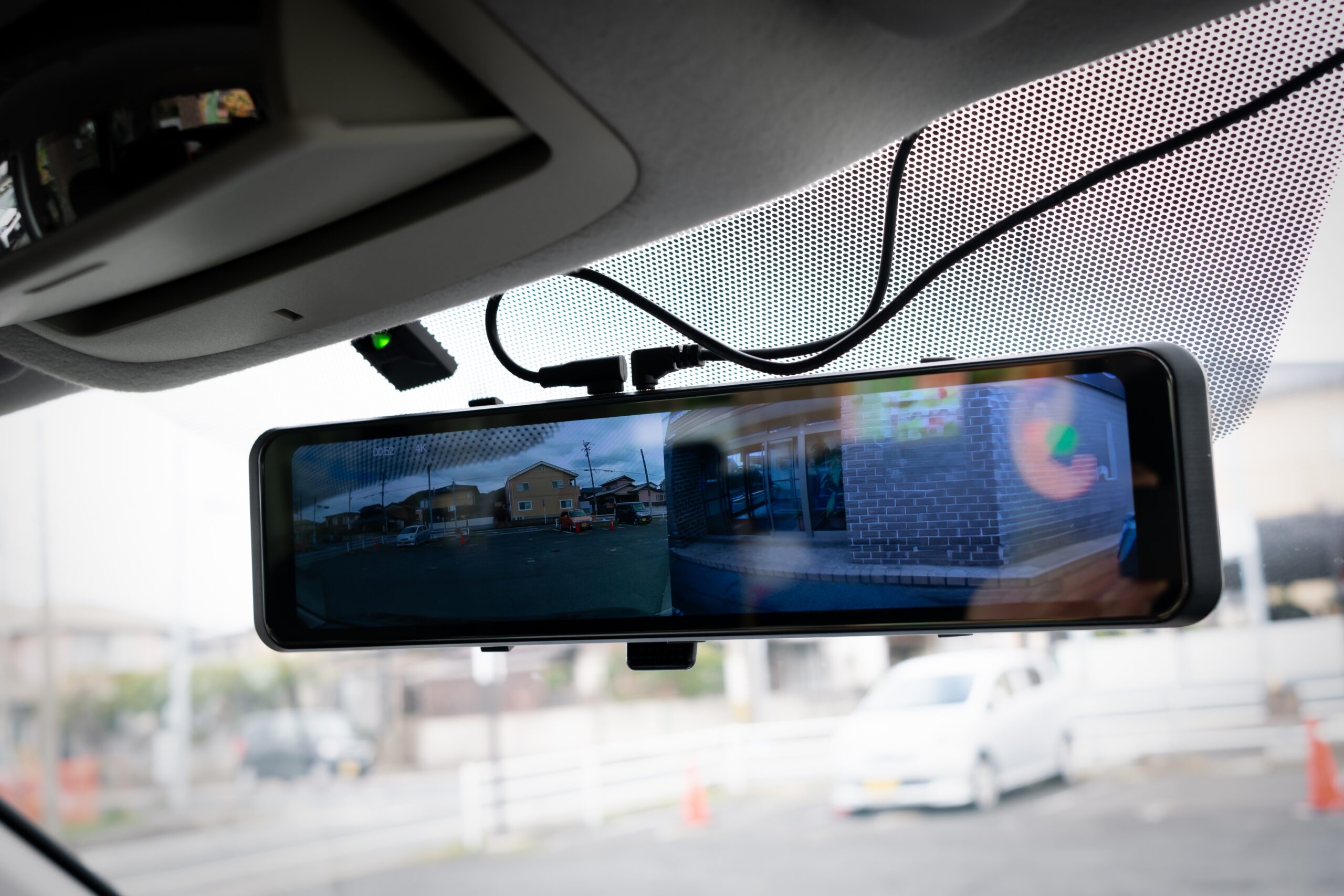
Can a Dashcam Save NJ Drivers From Unjustified Cell Phone Tickets?
A dash camera installed in your car might mean the difference between paying significant traffic penalties and defending yourself against an unfair ticket.
As distracted driving enforcement increases across the Garden State, more drivers face stiff fines for alleged mobile phone use on the roadway. However, video footage from an adequately fitted dashcam can provide the critical data needed for contesting unjustified tickets.
If you received a cell phone ticket, immediately consult a traffic ticket attorney in Clifton for assistance.
Schedule a Free Initial Consultation Today!
The Financial Impact of Cell Phone Tickets in New Jersey
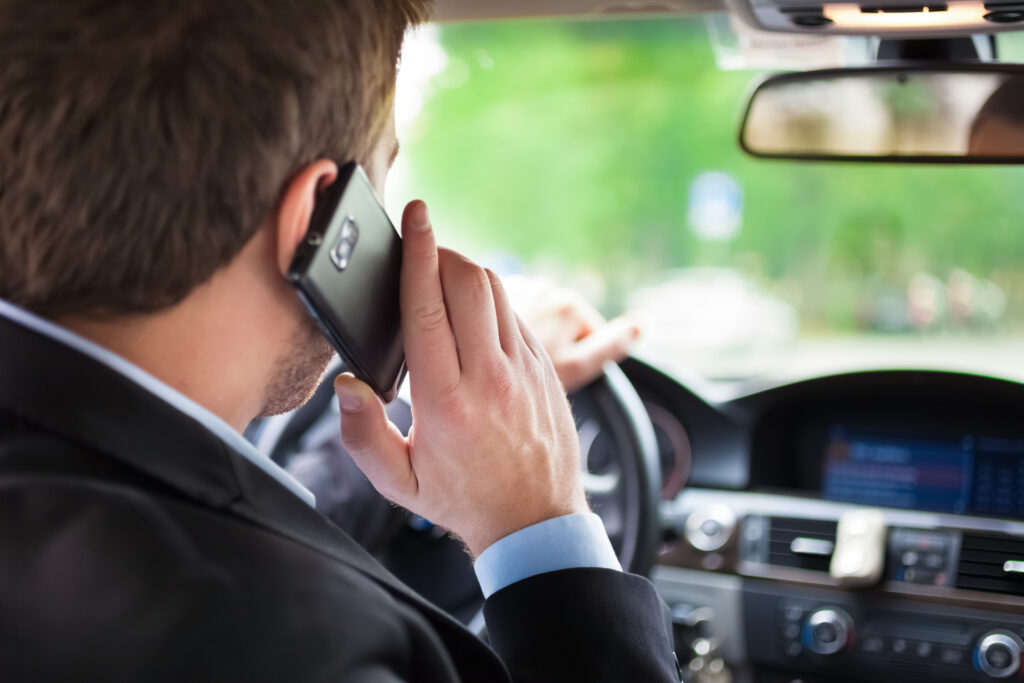
New Jersey takes distracted driving seriously, with fines beginning at $200 for a first offense and increasing to $400 for a second infraction and $600 for third and subsequent violations.
Aside from the immediate cash penalty, having a mobile phone ticket can add 3 points to your driving record and cause higher insurance rates, costing thousands of dollars over time. You might even get your license suspended for 90 days.
How Dashcams Protect You
A dashcam captures an objective record of your driving behavior and actions within the car. Modern dashcams often have forward-facing and cabin-facing cameras, allowing them to capture road conditions and driver behavior. You can use this dual-perspective footage to show you’re not guilty of reckless driving.
Dashcam Evidence – The Benefits
The primary benefits of dashcam evidence include:
- Interior Recording Capabilities. Many dashcams now have infrared interior footage. This footage shows your hands on the steering wheel and indicates you were not holding or operating a phone when pulled over. Choose models with high-resolution cabin cameras and night vision capabilities for a clear recording.
- Continuous Recording. Most dashcams start recording when you start your car, allowing you to gather evidence of a traffic stop or a police encounter. Some versions can record in parking mode when your vehicle is motionless.
- GPS Integration. Dashcams with GPS capture your precise speed, position, and route. This data may be beneficial for disputing speeding tickets or other moving infractions since it gives independently verified evidence of your speed and driving habits.
- Proper Installation for Maximum Protection. A dealer should install your dashcam for the evidential value of your dashcam footage. A camera installer should set up the camera in a location that allows for clear views. Also, if applicable, the dashcam dealer should place the device in an area that does not breach state commercial windshield obstruction laws.
- Optimal Mounting Location. The best placement is usually behind the rearview mirror, where the camera can catch the road ahead and your motions inside the vehicle without causing a blind spot or distraction. Ensure all cabling is securely fastened and covered to retain a professional look and avoid interference with car controls.
- Power Supply Considerations. While many vehicles’ 12V outlets power dashcams, a professional hardwiring installation delivers more dependable operations and a cleaner appearance. This electrical installation lets you record in parking mode without exhausting your car’s battery.
Using Dashcam Evidence in Court
When disputing a traffic ticket in New Jersey, dashcam footage can offer persuasive evidence, but using it requires appropriate preparation and presentation.
Preserving Evidence
Once you receive a ticket, store and back up the pertinent footage. Most dashcams let you lock specific recordings to prevent you from overwriting them. You can download the footage to a secure site and make several copies.
Proper Documentation
Keep thorough records of your dashcam installation, including invoices, technical specs, and expert installation paperwork. It will help prove your recording system’s dependability and accuracy in court.
Presenting Video Evidence
Before your court date, ensure your film is in a format that the judge can readily watch. Many courts now accept digital evidence. The evidence must support local laws and provide access to DVDs and digital technology. Some dashcams feature software that synchronizes GPS data with video footage, offering a complete picture of what happened.
Schedule a Free Initial Consultation Today!
Additional Benefits Besides Traffic Ticket Testimony
While fighting citations is a significant motivator for many drivers to install dashcams, these devices provide other benefits as well:
- Insurance Claim Protection. In an accident, dashcam film can conclusively demonstrate blame and accelerate insurance claims. Many insurance firms now give premium discounts to vehicles outfitted with dashcams, recognizing their importance in decreasing fraudulent claims.
- Protection From Fraud. Dashcams can help avoid traffic fraud, such as staged collisions and bogus claims of damage or injuries. Constant recording creates an objective record of any occurrence.
Choosing the Right Dashboard Camera
When choosing a dashcam for legal protection, consider the following features:
Video Quality
Choose a device that can record at least 1080p quality and perform well in low light. Higher resolution gives more information on license plates, road signs, and other critical features that may be required as proof.
Storage Capacity
Selecting models that enable high-capacity memory cards and effective video compression can maximize recording times. Some sophisticated versions have cloud storage options for automated backups of key footage.
Additional Features
Motion detection, impact sensors, and Wi-Fi connectivity can also support the camera’s operation. Some versions may immediately transfer film to your phone or cloud storage if an accident or odd incident occurs.
Legal Considerations for Dashcam Use in New Jersey
While the law allows the use of dashcams in New Jersey, you still need to consider:
Mounting Restrictions
New Jersey law prohibits windshield-mounted gadgets that might block the driver’s vision. The dashcam dealer should install the dashcam in a safe area behind the rearview mirror or the top middle part of the windshield.
In New Jersey, audio recording requires a one-party agreement. Therefore, you must inform passengers that your dashcam may capture audio inside the car. Many dashcams allow you to mute the audio recording if desired.
Cost-Benefit Analysis
While excellent dashcams typically cost between $100 and $400, this investment may rapidly pay for itself by preventing even one unnecessary penalty. Consider, again, how much a single cell phone ticket in New Jersey may cost.
Take a quick look:
- First offense: $200 to $400 in fines
- Second offense: $400 to $600 in fines
- Third or subsequent offenses: $600 to $800 in fines
- Increases in insurance premiums of thousands of dollars over several years
- Points for License: This may impact insurance premiums and employment chances.
When considering probable insurance premium hikes and the likelihood of repeated infractions, the expense of a dashcam pales compared to the financial effect of unwarranted penalties.
Speak to a Traffic Ticket Lawyer Now
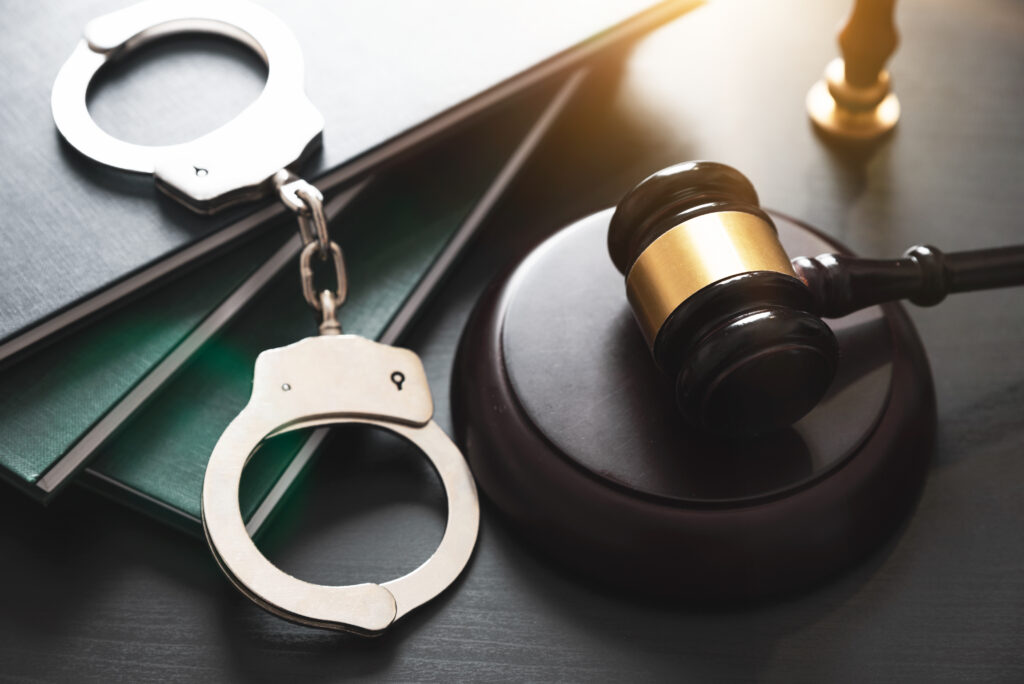
As New Jersey enforces rigid distracted driving rules, having objective video proof of your driving activity becomes increasingly important. A correctly equipped dashcam can provide the evidence to fight unwarranted penalties.
Fighting can be cost-effective, saving you thousands of dollars in fines and higher insurance rates. Retaining the services of a traffic ticket attorney can help you stay in control financially over time. Contact a criminal defense lawyer in Clifton now.
Schedule a Free Initial Consultation Today!
